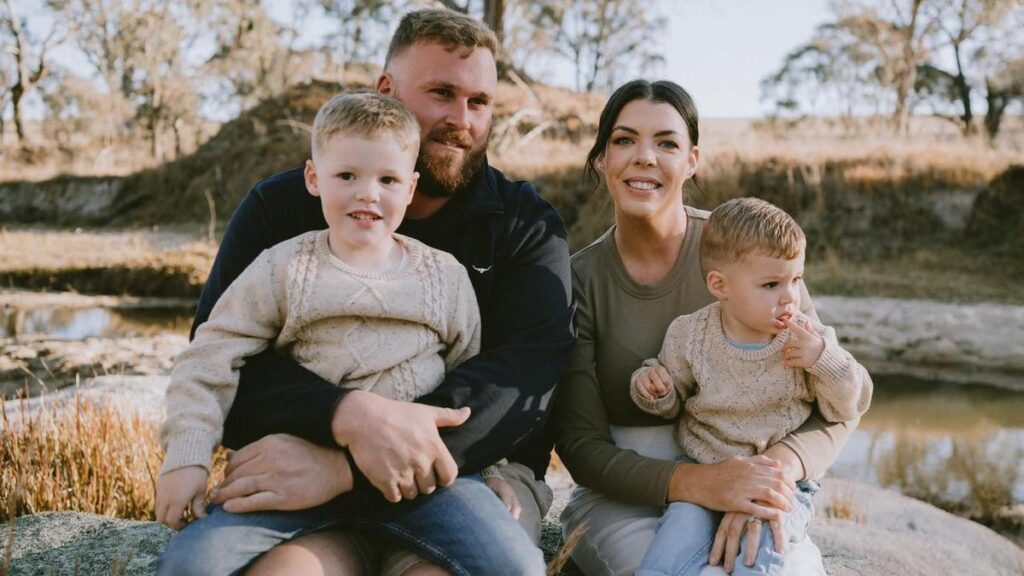
Women in rural Australia face significant challenges in accessing miscarriage care, often travelling extensive distances for essential medical services. A recent report by the pregnancy loss network Pink Elephants highlights the stark disparities in support available to women in remote areas compared to those in urban settings.
Claire Brett, who has experienced five miscarriages, shared her harrowing journey during her subsequent pregnancy. After the birth of her first son, Rosco, in 2018, she faced overwhelming anxiety with each passing day, wondering if she would safely deliver her second child. “Every single day, I’d wake up wondering, ‘Is today the day?'” she recounted. Her fears intensified when she went into labour at a rural hospital during the COVID-19 pandemic in 2021.
Brett requested that her husband be allowed into the hospital due to her anxiety. Initially, the staff seemed unaware of her past experiences, and she felt compelled to explain her situation. “Once they knew, the midwives were so lovely and caring,” she said. This lack of communication underscores the need for better continuity of care in rural healthcare settings.
Following the safe arrival of her son, Jimmy, Brett sought to advocate for other rural mothers dealing with miscarriage. Her experiences contributed to the findings in the Not Just A Loss report, which was released to coincide with Pregnancy and Infant Loss Awareness Month. The report reveals that women in rural areas are 1.6 times more likely to experience perinatal death compared to their urban counterparts.
The report advocates for a continuity of care model, allowing women to work with the same medical team throughout their pregnancy and after losses. This approach aims to improve the wellbeing of mothers and infants, a focus that emerged during the NSW parliamentary inquiry into birth trauma.
Rural families often find themselves needing to leave their communities for essential miscarriage management. In Western Australia, some women must travel up to 500 kilometres for dilation and curettage surgery. Dr. Megan Belot, a rural generalist in Charleville, Queensland, pointed out that ongoing closures of maternity units exacerbate these challenges. “It’s important to acknowledge the tyranny of distance,” she stated, highlighting the emotional toll on women who must leave their homes and families behind.
Dr. Belot supports reviewing the state’s patient travel scheme, which currently offers only $70 per night for accommodation per person over 18. This insufficient amount does not adequately address the financial burdens faced by families needing to travel for medical care.
The report from Pink Elephants also emphasizes the lack of national data on pregnancy loss, which renders miscarriage an invisible issue, particularly affecting First Nations women. Katrina Ward, who leads the Brewarrina and Walgett Aboriginal Medical Services in northern NSW, noted that adequate data is essential for securing health funding. She advocates for targeted funds to train more Aboriginal healthcare workers to provide essential support for miscarriage, pregnancy, and post-natal care in their communities.
“For years we’ve been saying Aboriginal people know what we’re doing, know what needs to be done, but we just can’t get the back-up to do it,” Ms. Ward expressed. The call for better support and resources reflects a growing acknowledgment that all women, regardless of their location, deserve comprehensive care during such challenging times.
The Pink Elephants report provides crucial insights into the urgent need for improved miscarriage care in rural areas. As awareness grows, advocacy for better resources and support systems remains essential for ensuring that no woman faces the pain of miscarriage alone. For those in need of support, assistance is available through Lifeline at 13 11 14 and beyondblue at 1300 22 4636.






